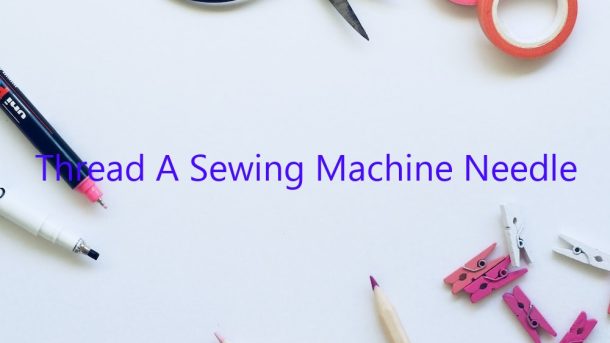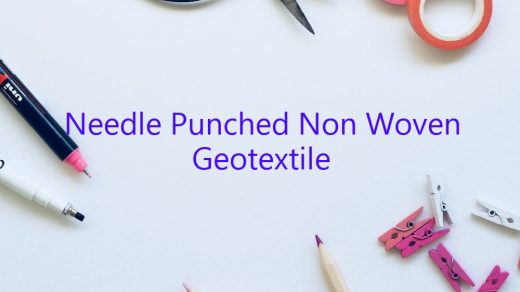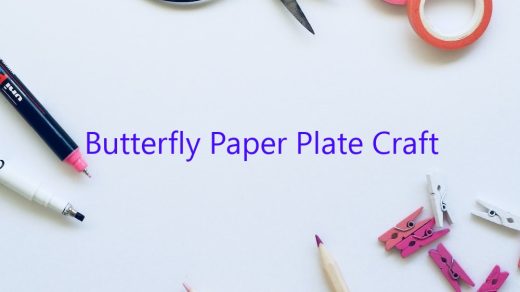A sewing machine needle is a thin, pointed piece of metal that is inserted into a fabric to create a stitch. There are many different types of sewing machine needles, each designed for a specific purpose.
The most common type of sewing machine needle is the sharp needle. This needle is thin and sharp, making it perfect for lightweight fabrics. The sharp needle is also great for creating tight, precise stitches.
Another popular type of sewing machine needle is the ballpoint needle. This needle is designed for fabrics with a high thread count, such as knits and stretch fabrics. The ballpoint needle has a rounded tip that prevents it from piercing the fabric’s surface, which can cause damage and skipped stitches.
There are also several specialty needles available for sewing machine users, including needles for quilting, embroidery, and topstitching. Each type of needle is designed for a specific purpose, so it’s important to choose the right needle for the job.
When selecting a sewing machine needle, it’s important to consider the type of fabric you’re working with and the type of stitch you need to create. Different needles are better suited for different fabrics and stitching techniques.
Always use the right needle for the job to ensure quality stitches and a long life for your sewing machine needle.
Contents
What is the easiest way to thread a sewing machine needle?
There are a few ways to thread a sewing machine needle, but the easiest way is to use a needle threader. A needle threader is a small metal or plastic tool that has a curved wire loop on one end and a small hook on the other.
To use a needle threader, first unhook the wire loop from the hook. Then thread the wire loop through the needle eye from front to back. Finally, hook the wire loop back over the hook on the needle threader.
To use the needle threader, hold it up to the light so you can see the wire loop clearly. Then put the thread in the wire loop and pull the threader towards the needle. The thread will go through the needle eye and be attached to the thread.
How do you thread a needle and bobbin on a sewing machine?
Threading a needle and bobbin on a sewing machine can seem daunting at first, but it’s actually a very simple process. This guide will show you how to do it.
To thread a needle on a sewing machine, first make sure that the machine is turned off and unplugged. Next, remove the needle plate and the bobbin housing. The needle plate is the small metal plate that sits above the bobbin housing and has a hole in the center. The bobbin housing is the small plastic piece that sits below the needle plate and contains the bobbin.
Once the needle plate and bobbin housing are removed, you will be able to see the bobbin and the needle. The bobbin is the small, round metal piece at the base of the needle. The needle is the long, thin metal piece that extends out of the bobbin.
To thread the needle, hold the bobbin in your left hand and the needle in your right hand. Put the thread through the hole in the bobbin and wrap it around the bobbin a few times. Now take the thread and put it through the hole in the needle. Gently pull the thread until the knot at the end of the thread is tight against the needle.
To thread the bobbin, hold the bobbin in your left hand and the needle in your right hand. Put the thread through the hole in the bobbin and wrap it around the bobbin a few times. Now take the thread and put it through the hole in the needle. Gently pull the thread until the knot at the end of the thread is tight against the needle.
Now put the needle plate and the bobbin housing back on the sewing machine. Make sure that the needle plate is sitting above the bobbin housing and that the two are aligned properly. If they are not aligned properly, the machine will not sew correctly.
Now plug in the machine and turn it on. The machine will automatically start threading the needle for you. When the needle is threaded, the machine will stop automatically.
Now you are ready to start sewing!
How do you thread a sewing needle?
Threading a sewing needle can seem like a daunting task, but with a little practice it can be done in a matter of minutes. The first step is to find the eye of the needle. This is the small hole at the end of the needle. Once you have found the eye, you will need to thread the needle.
There are a few ways to do this. One way is to use a threader. A threader is a small metal or plastic device that helps to thread the needle. To use a threader, slide the threader through the eye of the needle. Then, put the thread on the threader and pull the threader through the eye. The thread will be threaded through the needle.
Another way to thread a needle is to use a piece of thread. Cut a piece of thread that is about 18 inches long. Thread one end of the thread through the eye of the needle. Then, hold the other end of the thread in your fingers and pull the thread through the eye. The thread will be threaded through the needle.
Once the thread is threaded through the needle, tie a knot in the end of the thread. This will keep the thread from coming out of the needle. Now you are ready to start sewing!
Which way does thread go on sewing machine?
When sewing, the direction of the thread is important. The thread must go in the same direction as the seam. If it does not, the seam will not be strong and may fall apart.
On a sewing machine, the thread goes in the direction of the needle. The thread is inserted into a small hole on the back side of the needle. As the needle goes down through the fabric, the thread is pulled through the hole. The thread is then held by a small metal piece called the bobbin. The bobbin is located in the bottom of the machine. As the needle goes back up, the thread is pulled up with it.
Why is threading a needle so hard?
Threading a needle is a very difficult task. It requires a lot of dexterity and patience. Here are some of the reasons why it is so hard to thread a needle:
The eye of the needle is small and difficult to see.
The thread is thin and easily breaks.
The thread is easily tangled.
The task requires a lot of precision and dexterity.
It can be frustrating and difficult to get the thread through the eye of the needle.
However, with a bit of practice, it is possible to thread a needle. Here are a few tips:
Make sure that the thread is straight.
hold the thread between your thumb and first two fingers
use a sharp needle
make sure there is enough light to see the eye of the needle
use a steady hand
keep the thread taut
Do you tie a knot after threading a needle?
Threading a needle is the process of pushing a piece of thread through the eye of a needle. This can be a difficult task, but there are a few tricks you can use to make it easier. One of those tricks is to tie a knot after threading the needle.
Many people tie a knot after threading a needle because it helps to keep the thread in place. When you’re done sewing, the knot will keep the thread from coming undone. This can be especially helpful when you’re sewing a heavy fabric, like denim.
If you’re not sure how to tie a knot, there are a few tutorials online that can show you how. You can also find videos on YouTube that show how to do specific needlework stitches.
If you don’t want to tie a knot, you can also use a needle threader. A needle threader is a tool that helps you to thread a needle without having to see the eye of the needle. It has a small wire with a loop on the end, and you put the thread through the loop. Then, you put the wire through the eye of the needle, and pull the thread through.
Needle threaders are available at most craft stores, and they come in a variety of different sizes. They’re also very affordable, so they’re a great option if you don’t want to tie a knot.
So, do you tie a knot after threading a needle? It’s up to you. If you find it helpful, then go ahead and do it. If you’re not sure how, there are plenty of tutorials online that can help you out.
How do you thread a needle on a Singer sewing machine?
Threading a needle on a Singer sewing machine can be a little daunting the first time you do it, but with a little practice it becomes easy. The first step is to find the thread holder on the machine. It will be a small hole near the needle. The thread holder is where you will insert the thread.
Now, you will need to take the thread and make a small loop. This loop should be big enough to fit over the needle, but not so big that it falls off. Once you have created the loop, you will need to insert it into the thread holder.
Once the thread is in the thread holder, you will need to hold on to the thread and slowly press down on the pedal. This will cause the needle to go down. As the needle goes down, the thread will be pulled into the machine.
When the needle comes back up, it will bring the thread with it. Now, all you have to do is grab the thread and pull it tight. If the thread is too loose, it will unravel and you will have to start over.
Once the thread is tight, you can begin sewing.




